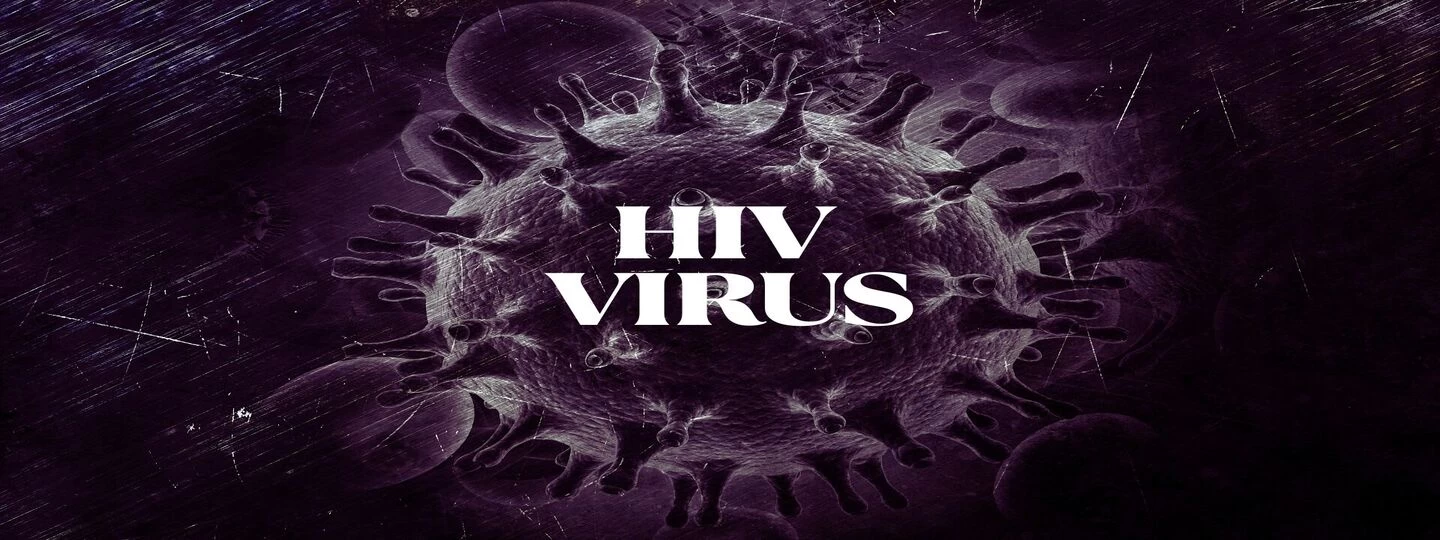- Email Us

Wondering about the early signs
of HIV, when to get tested, or how to protect yourself? This blog has all of
the answers you need.
Although HIV (Human Immunodeficiency Virus) is no longer a death sentence,
early detection is critical. The sooner it is recognized, the sooner treatment
can begin, resulting in a healthier, longer life. With over 2.4 million people living with HIV in India (according
to NACO), awareness and early intervention are critical to halting its silent
spread. Many people are unaware that they are infected until the disease has
progressed, as early symptoms are generally vague or misdiagnosed as other
ailments. In
this blog, we’ll break down the stages and symptoms of HIV, when to get tested
and what diagnosis tests are available with advanced treatment and medication.
Whether you're looking for answers, peace of mind, or guidance on getting
tested, this guide is built for you.
What is HIV? In simple terms:
Human immunodeficiency virus is
referred to as HIV. HIV damages and infects immune system cells, making it more
difficult to fight against other illnesses. HIV can cause acquired
immunodeficiency syndrome (AIDS) if it has significantly compromised your immune
system. CD4 cells, a subset of T cells,
are impacted by and killed by HIV if left untreated. HIV increases the
body's risk of developing a number of illnesses and malignancies over time as
it destroys more CD4 cells.
Stages of HIV:
1) Stage
one (Acute HIV infection): The initial stage of HIV infection, known as acute
HIV infection, often appears two to four weeks following HIV infection. Some
people experience flu-like symptoms during this time, including fever,
headache, and rash. HIV rapidly multiplies and spreads throughout the body
during the acute stage of infection, targeting and eliminating the immune
system's CD4 cells, or CD4 T lymphocytes, which fight infection.
2) Stage two (Chronic HIV infection): Chronic
HIV infection, sometimes referred to as asymptomatic HIV infection or clinical
latency, is the second stage of HIV infection. HIV continues to grow in the
body throughout this phase, but very slowly. Individuals with a persistent HIV
infection may not exhibit any symptoms associated with HIV. Although it may
progress more quickly in certain individuals, chronic HIV infection typically
progresses to AIDS in ten years or more without ART (Antiretroviral Therapy).
For several decades, people on ART (Antiretroviral Therapy) may remain in
this stage.
3) Stage
three (AIDS): The last and most serious stage of HIV infection is
AIDS, which seriously impairs immunological function. Because of this, the body
is unable to combat opportunistic infections, which are also known as
conditions that define AIDS. If a person with HIV has a CD4 count below 200
cells/mm3 or has specific opportunistic diseases, they are diagnosed with AIDS.
A person with HIV might have a high viral load and spread the virus to others
with ease once it reaches the AIDS stage.
HIV Symptoms:
From Early Warning Signs to Advanced Stages
1) Symptoms
in Primary/Acute HIV stage:
· Headache
· Diarrhea
· Fever
· Weight
loss
· Swollen
lymph glands (also known as nodes)
· Cough
· Rash
· Sore
throats
· Mouth
ulcers
· Muscle
aches and joint pains
2) Symptoms in Clinical Latent Infection/ Chronic HIV
stage:
· Pneumonia
· Shingles
(also known as herpes zoster)
· Fever
· Fatigue
· Thrush
(also known as oral yeast infection)
· Weight
loss
3) Symptoms in progression to AIDS stage:
· Ongoing
diarrhea
· Constant
fatigue
· Weakness
· Rapid
weight loss
· Skin
rashes and bumps
· Swollen
lymph glands
· Constant
episodes of fever
· Sweats
· Chills
· Lesions
or constant white spots on the tongue or in mouth
How HIV Is Diagnosed: Tests You Need to Know About
At Mahajan Imaging
& Labs, HIV testing is conducted using reliable blood-based and other
sample types, depending on the patient’s condition and stage of infection. We offer a range of
advanced HIV tests tailored to individual diagnostic needs, whether for early detection
or ongoing monitoring:
· HIV Antibody
Test (Includes P24 Ag): The P24 antigen, which manifests early in
infection, and HIV antibodies are detected by the HIV Antibody Test (Includes
P24 Ag). This assists in the early diagnosis of HIV.
· Rapid HIV Test: A rapid HIV screening test that
uses saliva or blood. Results are provided in a matter of minutes, however
further testing may be necessary for confirmation.
· Western
Blot Test: HIV-specific proteins can be found using the
Western Blot Test, a confirmatory test. This is used to confirm that HIV
screening test results are positive.
· HIV RNA Qualitative Test: Determines whether HIV RNA is
present in the blood. Beneficial for early detection prior to the development
of antibodies.
· HIV RNA Quantitative Test: Determines the blood level of
HIV RNA. This helps track how well a treatment is working and how the disease
is progressing.
· Immune
Deficiency Panel (CD3, CD4, CD8 & HIV RNA Quantitative): The
Immune Deficiency Panel (CD3, CD4, CD8, & HIV RNA Quantitative) measures
HIV RNA levels and important cell markers to evaluate the health of the immune
system. This is utilized to track HIV infection and inform treatment choices.
Leading the Way in HIV Care: Why Mahajan Imaging & Labs
Stands Out
At Mahajan Imaging & Labs,
we understand that HIV testing and diagnosis is more than just a medical
process—it’s a moment that calls for precision, privacy, and compassion. We go
beyond standard testing to offer a comprehensive, patient-first approach rooted
in technology, accuracy, and human care.
With over 35+ years of diagnostic excellence, we offer:
· Advanced
HIV testing options for every stage of diagnosis
· Home
sample collection across Delhi NCR, focusing on convenience of patients
· Fast
turnaround times with high-accuracy reporting
· High
trained medical professionals
Mahajan Imaging & Labs is dedicated to helping you at every stage—with
tact, knowledge, and discretion—whether you're looking for early detection,
confirmation testing, or continuous monitoring. You can book your test with us through
our website, WhatsApp at
+91 88828 97661 or speak directly to our support team at +91 11 4118
3838.
Stay informed. Stay empowered. Stay ahead—with Mahajan
Imaging & Labs.
Final Thoughts
Although HIV is no longer a
mystery or a stigma, the most effective strategies we still have are quick testing,
effective prevention, and early awareness. Knowing when to get tested, being
aware of the early warning symptoms, and having access to reliable medical
assistance can really make a big difference.
Remember that HIV is treatable
and that early intervention saves lives, whether you're starting the diagnosis
process or just educating yourself and your loved ones. You're never alone on
your journey with Mahajan Imaging & Labs' cutting-edge testing options and
professional care.
Frequently Asked Questions
Q1. Are HIV and Aids the same thing?
Ans. No, the
virus that impairs immunity is called HIV (Human Immunodeficiency Virus). The
advanced stage of HIV infection known as AIDS (Acquired Immunodeficiency
Syndrome) is characterized by a severely compromised immune system, which can
result in opportunistic infections and major health consequences.
Q2. Can a pap smear detect HIV?
Ans. No, a Pap
smear does not identify HIV; instead, it checks for cervical abnormalities
brought on by HPV or other infections. Pap
smears, however, aid in monitoring associated difficulties because HIV-positive
people are more likely to experience cervical problems.
Q3. How common are false negatives and false positives?
Ans. Although
HIV tests are quite accurate, if they are performed too soon (within the window
period), false negative results may result. False positives are uncommon, and
for a correct diagnosis, confirmation testing such as Western Blot or RNA
assays is typically necessary.
Q4. Can HIV live outside the body?
Ans. HIV does
not persist outside of the human body for very long. Transmission outside the
body is uncommon since it rapidly becomes inactive when exposed to air,
temperature changes, or environmental factors.
Q5. Which body fluids transmit HIV?
Ans. HIV can
spread through breast milk, semen, vaginal and rectal secretions, and blood.
There is not enough HIV in pee, tears, sweat, or saliva to spread the virus.




